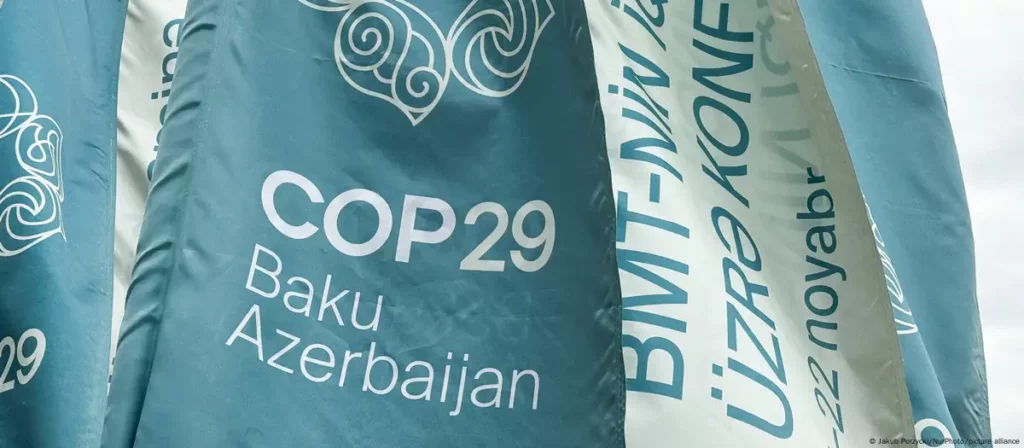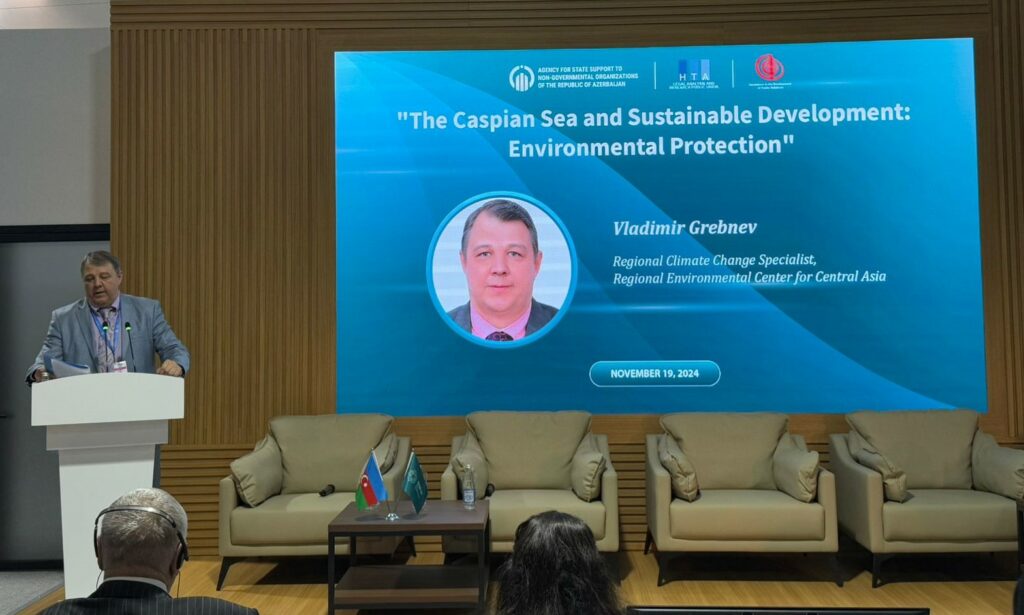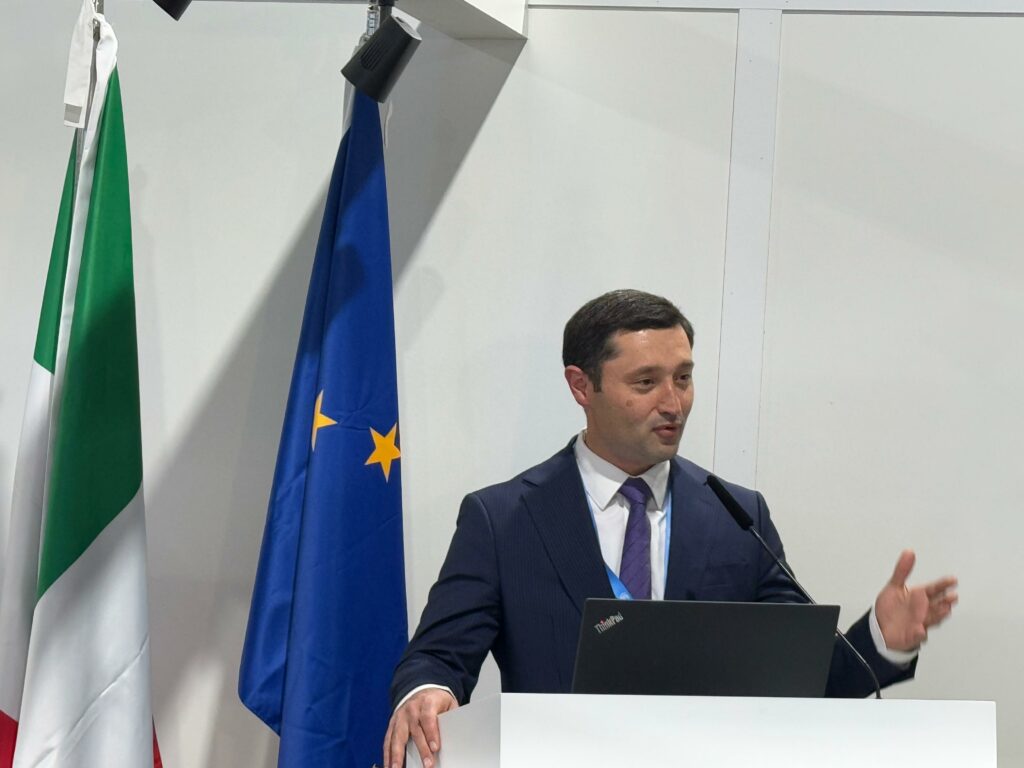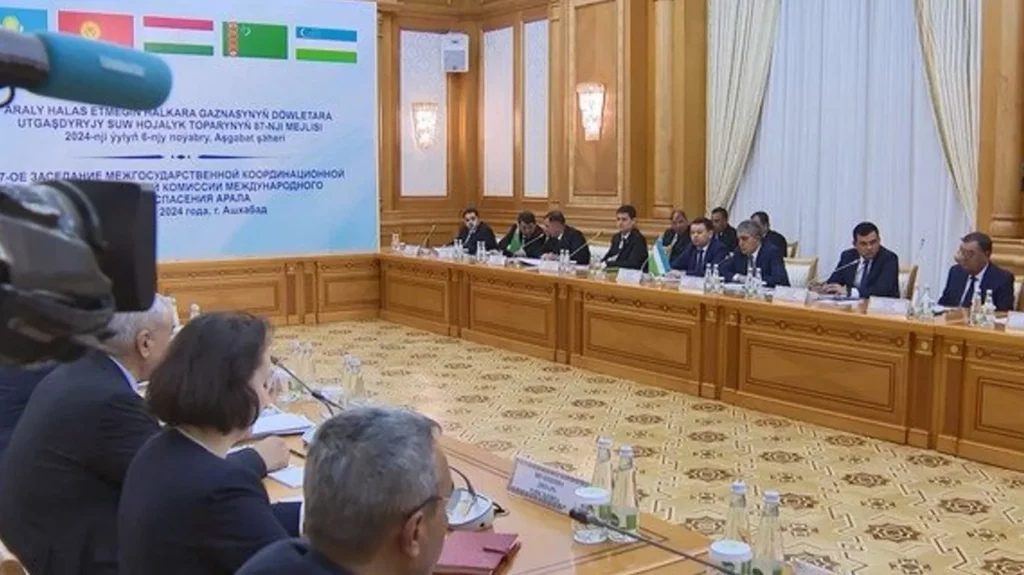COP29 in Baku: Who will pay for climate change adaptation?
November 18, 2024
“As a country rich in fossil fuels, we will protect the right of other countries to extract them and invest in this extraction,” said Azerbaijani President Ilham Aliyev, speaking at the Petersberg Climate Dialogue, which took place in Berlin in April this year. In doing so, the head of Azerbaijan defined the route his country intends to follow in the climate negotiations . The 29th session of the UN Climate Change Conference (COP29) has been taking place in Baku since November 11. The leadership of Azerbaijan itself has little interest in not extracting fossil fuels, despite the fact that their use leads to negative climate change. Baku’s position is understandable, although Azerbaijan has great potential for developing renewable energy , but profits from the sale of oil and gas provide 60 percent of state revenues.

Where does the money for climate protection come from?
In addition to reducing CO2 emissions, this year’s international climate conference faces another difficult task: heads of state and government must decide what financial support developing countries can receive to cope with the growing impacts of climate change and move towards more sustainable economies.
Rich countries including the US, Japan and the EU committed years ago to providing $100 billion annually from 2020 to help developing countries combat climate change. But the target was only met in 2022. Much of the money was offered in the form of high-interest loans, prompting widespread criticism and accusations of broken promises.

Niklas Höhne of the German NGO New Climate Institute believes that a figure of between 200 and 700 billion dollars per year could be agreed upon. “Then there would be a fair financial balance between the rich countries, which are really responsible for climate change, and the less rich countries, which are primarily affected by this change,” Höhne told DW.
Developing countries have repeatedly called for a 10-fold increase in aid . Industrialized nations consider these figures unrealistic. At the same time, they want oil-rich Gulf states and China to share the financial burden.
The contentious issue: who pays the bills?
Although rich industrial countries have historically borne much of the blame for the climate crisis, China is now the world’s largest greenhouse gas emitter . Yet it is still officially classified as a developing country and should theoretically receive investment itself, rather than supporting poor countries.
The 2023 climate conference was also held in an oil-producing country. The host country was the United Arab Emirates , which is also still technically considered a developing country. It promised poor countries financial support for the energy transition and recovery from climate disasters. Observers saw this as a glimmer of hope that rich developing countries would now take on more responsibility.
Countries participating in the UN conference in Dubai have reached a historic agreement to phase out all fossil fuels in order to achieve net-zero CO2 emissions by 2050. None of the previous climate summit documents mentioned phasing out oil and gas.

But despite the grandiose statements, the planet continues to warm . In the 2015 Paris climate agreement, 197 countries set a goal to limit global warming to 1.5 degrees Celsius above pre-industrial levels. But we are far from there. Under current climate policy, scientists expect global warming to reach 3.2 degrees by the end of the century.
Climate protection – between rhetoric and reality
“There is a huge gap between rhetoric and reality when it is claimed that the 1.5C goal will be achieved, but one of the central objectives is not achieved,” said Alden Meyer, a leading expert at the E3G think tank, which specialises in international climate policy.

Both the UAE and Azerbaijan, as well as Brazil, which will host the next UN climate conference , have plans to expand fossil fuel production, Mayer explains. The same trend is being seen in the US, Canada, Norway, Australia and the UK.
Members of the Paris Climate Agreement will have to present new climate targets next year, but most of them don’t even have a draft yet, says Niklas Höhne. And donor countries, especially the EU, expect the money they donate to be used for climate action.
The challenges of climate investment are also compounded this year by the fact that many countries’ budgets are still reeling from the losses caused by the pandemic, economic uncertainty and the war in Ukraine, which has caused a major increase in military budgets around the world.
The uncertainty of climate project funding is also caused by Donald Trump’s victory in the US elections. During his first presidential term, Trump already announced his withdrawal from the Paris Climate Agreement. Now he has emphasized that coal, oil and gas production in the US will be a priority under him.
“His drive to increase fossil fuel production, his disregard for international agreements and his refusal to provide climate finance will worsen the crisis,” said Harjit Singh, a leading climate activist. He said Trump’s policies could undermine trust in international systems that protect the climate.
https://www.dw.com/ru/cop29-v-baku-kto-zaplatit-za-adaptaciu-k-izmeneniu-klimata/a-70798157




